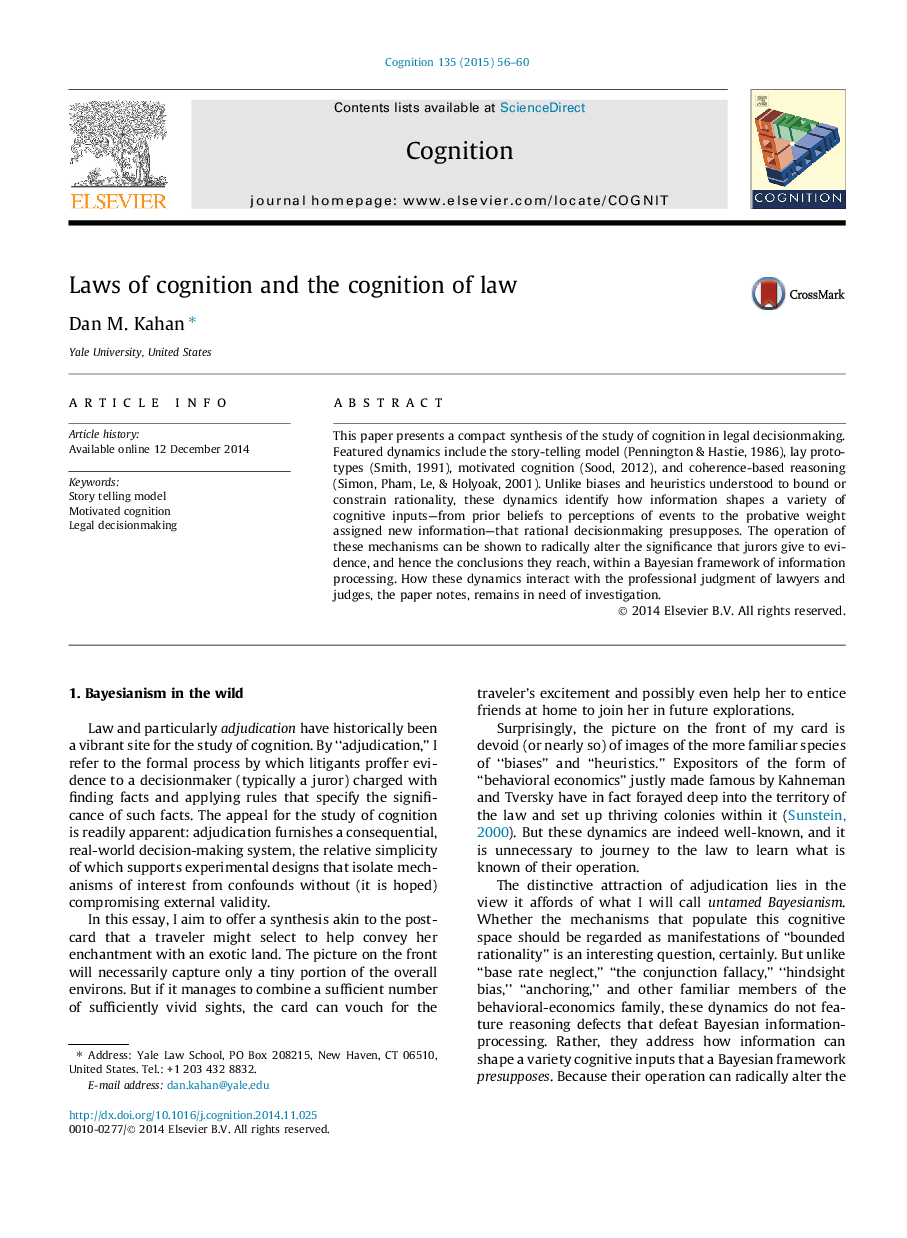| Article ID | Journal | Published Year | Pages | File Type |
|---|---|---|---|---|
| 926352 | Cognition | 2015 | 5 Pages |
•Legal adjudication admits of focused experimental study that retains external validity.•Such studies identify dynamics that alter the direction of without subverting Bayesian reasoning.•Whether professional judgment shields judges from such dynamics remains inadequately explored.
This paper presents a compact synthesis of the study of cognition in legal decisionmaking. Featured dynamics include the story-telling model (Pennington & Hastie, 1986), lay prototypes (Smith, 1991), motivated cognition (Sood, 2012), and coherence-based reasoning (Simon, Pham, Le, & Holyoak, 2001). Unlike biases and heuristics understood to bound or constrain rationality, these dynamics identify how information shapes a variety of cognitive inputs—from prior beliefs to perceptions of events to the probative weight assigned new information—that rational decisionmaking presupposes. The operation of these mechanisms can be shown to radically alter the significance that jurors give to evidence, and hence the conclusions they reach, within a Bayesian framework of information processing. How these dynamics interact with the professional judgment of lawyers and judges, the paper notes, remains in need of investigation.
